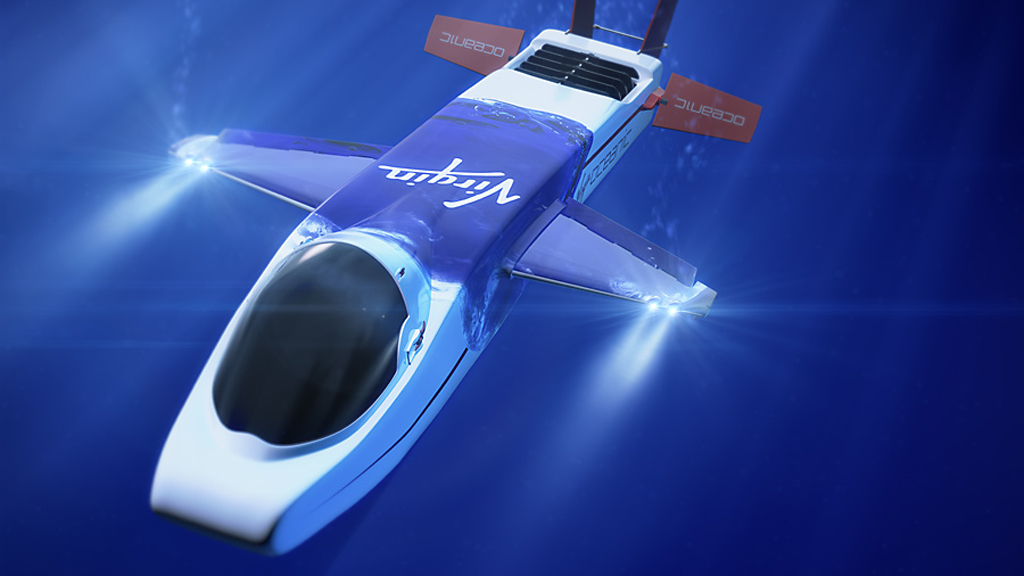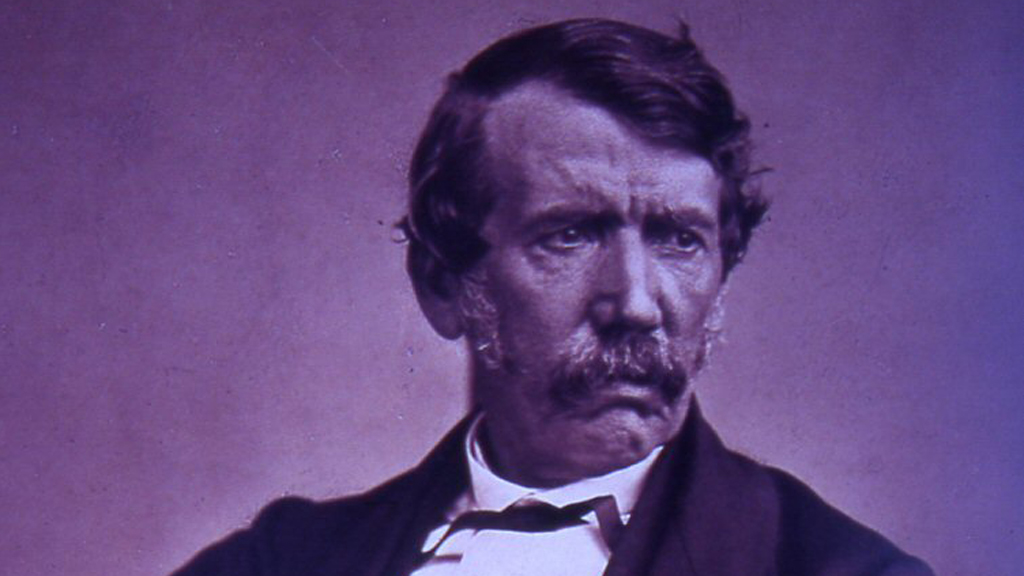Modern day adventure: is there anything left to discover?
In the week of the bicentenary of explorer David Livingstone’s birth, Channel 4 News asks three modern day adventurers why others should follow in their footsteps, and what they might find.
Livingstone, born in a Scottish tenement building in 1813, once said: “I will go anywhere, as long as it is forward.” For today’s great explorers this may have to be adapted to: “I will go anywhere, as long as it is up or down.”
Hundreds of millions of pounds are being pumped into exploration of the seas and space in a bid for greater knowledge of the uncharted realms.
The holding company for Sir Richard Branson’s Virgin Galactic project, for example, was valued at $900m four years ago. Film director James Cameron’s dive to the Mariana trench (see map, below), which descends to the lowest point on Earth, involved building a submersible that cost $8m.
You want to see if you can make things that some people say are impossible, possible. Sir Richard Branson
Robotic missions are also exploring the seabed (see map below) such as the National Oceanography Centre‘s exploration of the Beebe Vent Field in the Cayman Trough, the home of the world’s deepest known undersea volcanic vents, in February.
Exploring both realms carry inherent risks. So what is it that drives people to explore these uncharted territories?
Making the impossible, possible
Sir Richard Branson told Channel 4 News: “As an entrepreneur and as an adventurer you are trying to achieve things and make things better in other people’s lives, trying to overcome technological challenges.
“You want to see if you can make things that some people say are impossible, possible – and you have tremendous fun in the process.”
He too is planning an underwater adventure. Through his Virgin Oceanic project (see picture, below), Sir Richard Branson is planning to descend more than five miles into the Puerto Rico Trench, near his home on Necker Island. And he is well aware of the risks.

“I feel more comfortable about going into space,” he said. “I will go down once we have pressure test results that I am comfortable with. Hopefully within the next 12 months.”
“These adventures are physically challenging, and mentally challenging, and technologically challenging, and that is what makes them fascinating,” he added.
He also said that it is important to explore the depths of the ocean so we can learn lessons from the sea, specifically about climate change.
Last year Channel 4 News Science Editor Tom Clarke went exploring global warming in the Arctic - see what he discovered.
Flora and fauna
But it is not just in the oceans, or in space, where explorations are taking place. One example of on-land explorations are trips by scientists from Kew Gardens to remote parts of the planet as a part of the Millennium Seed Bank project.
It has always been science which has underpinned exploration – Paul Smith, Kew Gardens
Scientists from Kew have been to the remotest islands on the planet, and have worked in locations from Mount Mabu (see map, above) in northern Mozambique to the Kalahari desert. With 170 partners worldwide, the project conducts around 200 expeditions a year.
The project is planning to collect 25 per cent of the world’s plant species as seeds by 2020 – with the seeds being stored at -20 degrees celsius in an underground vault in Sussex.
“There is a danger that adventuring is seen as a vanity project,” Paul Smith, head of the project, told Channel 4 News. “The best adventuring was always for the reasons of science and commerce, and that is still the case.
Our aim with space travel is for the next generation to be able to ask ‘do we want to fly to Africa or do we want to fly to space?’ Sir Richard Branson
“Livingstone himself was a scientist. The great Victorian explorers were all scientists. It has always been science which has underpinned exploration, and botany in particular.
“It is nice to watch exploration programmes on the television, but studying the way we manage or co- exist in the world, that for me is what makes exploration so important.”

Preserve of the wealthy?
For Sir Richard the idea of commerce is a part of why Virgin has invested in exploration, but also, he says, is his own sense of adventure, fostered as a child exploring the countryside in which he lived.
“When we set the challenge to be the fastest across the Atlantic in a boat, we had one Virgin plane crossing the Atlantic,” he said. “We thought it was an effective way to tell people that Virgin existed, but it was also a wonderful personal adventure.”
He also agrees that to some extent exploration is the preserve of the wealthy, but says this “opens doors” for other to follow suit.
“The wealthy people are the people who can pioneer new forms of travel, or who can scale Mount Everest,” he said. “Then they open doors for many people to follow in their footsteps.
Young people want to be warriors without a war – fighting to save the planet. Colonel John Blashford-Snell
“If you want to go to the Antarctic there are tour companies who can get you there for a fraction of the price that it cost Scott to explore there.

“Our aim with space travel is for the next generation to be able to ask ‘do we want to fly to Africa or do we want to fly to space?’, and it will be up to us to get the price level down.”
‘Warriors without a war’
For Colonel John Blashford-Snell, who in 1968 made the first descent of the infamous Blue Nile, exploration is not just about discovering unseen parts of the planet.
Colonel Blashford-Snell founded Operation Raleigh, now Raleigh International, which sends young people on expeditions all over the globe, and told Channel 4 News: “The most important contribution I can make today is to try and inspire young people to take their part in fighting to save the environment, the people, the flora and the fauna, because the world is rapidly being destroyed.
“Everywhere you go there is a need to do something about the environment, so it is not just looking for something unknown, it is looking for ways to correct the damage that has been done.
“Young people want to be warriors without a war – fighting to save the planet.”
This year Colonel Blashford-Snell, formerly of the Royal Engineers, is planning to lead an expedition to Peru to provide clean drinking water to tribes, and in 2014 is planning to head to western Nepal to study elephants.
Despite the colonial image the explorers of the Victorian era command, David Livingstone has been credited with a number of discoveries that have benefited people today – including discovering the link between mosquitoes and malaria, and campaigning against slavery.
“I think its very important to bring people aware of the problems of slavery because it still goes on there’s said to be some 20 million people in the world in some form of slavery, despite Livingstone, and that is a very frightening figure,” he said.
Tell Channel 4 News what you think the next great adventures are. Tweet us with the hashtag #c4adventures.